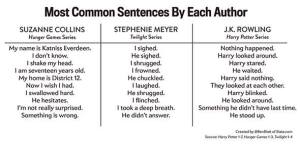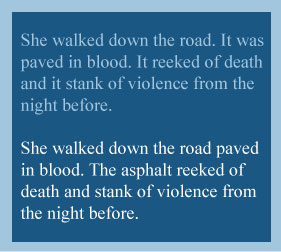“Writing is an exploration. You start from nothing and learn as you go.” — E.L. Doctorow
If someone told me as I first started writing about nine years ago that my writing would be a never ending journey, I’m not sure I would have set out on that particular path. Granted, most people start writing for a reason, which usually includes the buzzing of character voices and ideas that won’t shut up. That was my case, and even with that warning I probably wouldn’t have had a choice in the matter. I find writing to be the only way to get the voices to shut the hell up (yeah, that makes me sound pretty certifiable huh?). But it’s the idea of the never ending that might make most people bulk, though I have learned since then that never ending can be a good thing.
When I started writing, I didn’t even know how to put a decent sentence together. Of course back then, I thought I could do at least that much, but I was young, delusional, and a little stupid. I don’t even dare look back at my writing from the very beginning because I’d cringe way too much. It was embarrassing. Really it was.
Continue reading “Writing, a Never Ending Journey of Exploration and Learning”

